Diagnostics for Dogs & Cats
Diagnostics and blood work for your cat or dog helps identify disease early, so they can receive the best health interventions possible.

Trustindex verifies that the original source of the review is Google. Always greeted with a warm welcome, vets and nurses are all so kind and caringTrustindex verifies that the original source of the review is Google. One of the best and caring vets I've been to.Trustindex verifies that the original source of the review is Google. They helped bring a little comfort and kindness during an otherwise heartbreaking time.Trustindex verifies that the original source of the review is Google. These ladies (and Tim!) are the best in the business in my opinion. They were so patient and loving with my boy Marvin, they were helpful and answered any and all questions I had. He was spoilt rotten with cuddles and treats and I can bet he is excited for his next visit already. Thank you to the Moffat Beach Vets team!!Trustindex verifies that the original source of the review is Google. My first visit to your Veterinary Practice where I registered my little dog Georgie Girl. It was a wonderful experience. Dr Belinda who examined Georgie was amazing and suggested a number of things that may help towards Georgie 's wellbeing. I would have no hesitation in recommending Dr Belinda at Moffat Beach Vets to my friends. She was so easy to talk to and Georgie was so relaxed when she was examined, which is normally unusual for her. The Vet Nurse Taylor was also very friendly and helpful. I would definitely let all my friends know about Moffat Beach Vets.Trustindex verifies that the original source of the review is Google. Brilliant and super friendly and helpfulTrustindex verifies that the original source of the review is Google. All staff are welcoming and knowledgeable!! They make it so easier for me to book my pet in around work schedules which I appreciate!! Staff are always happy to see you and conversations are so easy!Trustindex verifies that the original source of the review is Google. My fur baby Bella who is a rescue hates anyone thats breathing an warm red blood running through their veins. I'm not joking. Thanks to the wonderful staff they can not only wash her but clip her nails. I have 3 fur babies an I never have to drag them in there. Powderpuff actually runs in there to greet them. The first 2 months of taking Bella to get groomed they call me to say they can't get her to come out of the cage. I kept taking her there an they finally won her over.Verified by TrustindexTrustindex verified badge is the Universal Symbol of Trust. Only the greatest companies can get the verified badge who has a review score above 4.5, based on customer reviews over the past 12 months. Read more
Vet Clinical Pathology Lab
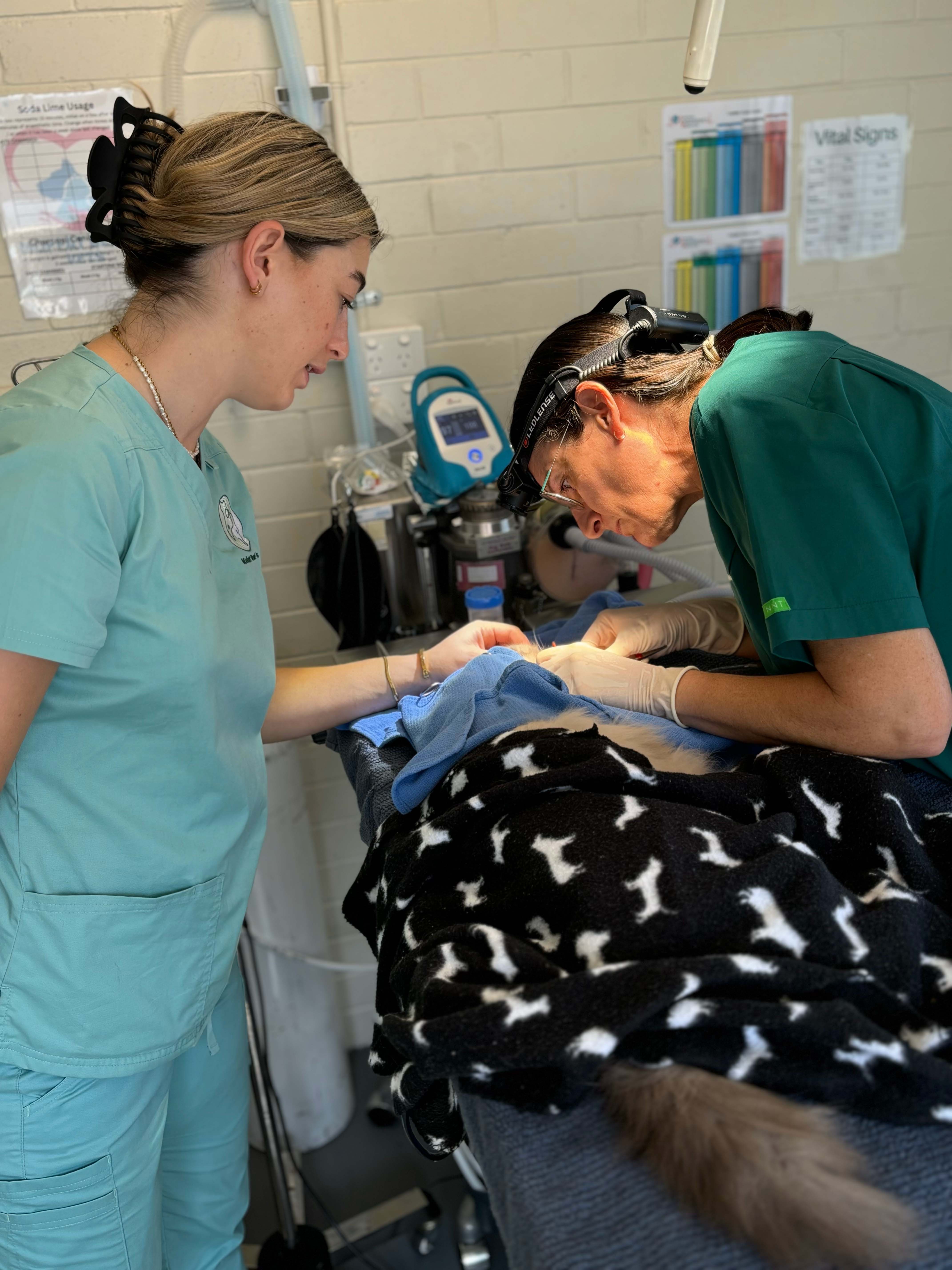
Tests We Use To Diagnose Your Pet

Blood Tests

Body Fluid Analysis

Tissue Biopsy

X-rays & Ultrasounds
Did you know?
Our in-house laboratory can provide same-day results.
If your animal is very ill or requires immediate or emergency treatment, we offer same day diagnostics for specific cases.
Some more specialised tests may need to be performed by an external veterinary laboratory. Specialised testing may take longer, especially if the sample is sent to an external laboratory. External laboratory results are usually obtained within 12-24 hours for blood results or up to 14 days for biopsy results.
Why Are Diagnostic Tests Important For Pets?
Blood Analysis
Blood tests offer valuable information about your pet’s organ function, hormones, and immune system, helping to identify potential diseases.
Analysis of blood includes blood chemistries, complete blood counts, and blood clotting times.
Bodily Fluid Evaluation
We analyse your pet’s urine (urinalysis) to assess your pet’s kidney function, urinary tract health and hydration status.
Faecal tests help us determine if your pet has intestinal parasites like roundworms, hookworms or tapeworms. We also collect stool samples to identify ongoing gastrointestinal issues.
Body Tissue Biopsy
To identify conditions like skin cancer, infections, allergies, or autoimmune disorders affecting the skin, we biopsy unusual lumps, skin lesions, rashes, or sores.
Biopsies allow us to catch any tumours early and identify specific cancers.
Annual Blood Tests for Cats & Dogs
Similar to humans, getting routine blood tests for your pet helps us understand their baseline health quality.
As your pet ages, this routine blood work becomes even more important for early diagnosis and disease prevention. Even if your pet is acting normal, they may be suffering from a silent disease.
Blood tests are a simple, quick way for us to keep your cat or dog healthy over the long term.
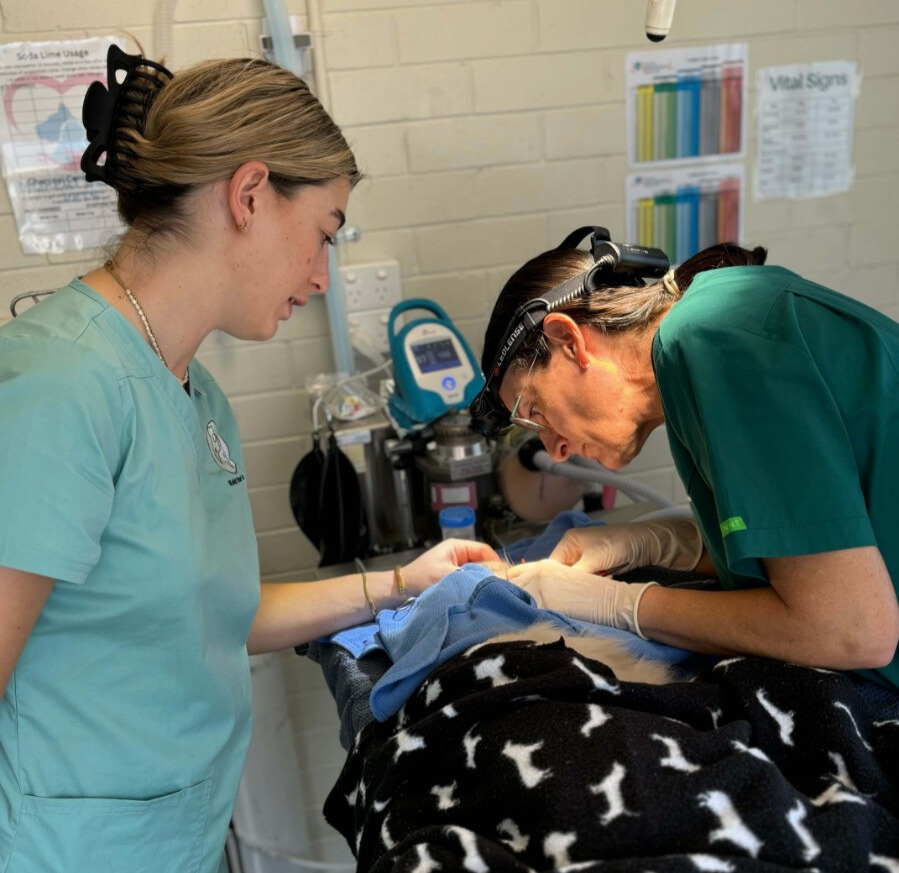
Calm Visits With Our Fear Free Approach
At our vet clinic, your pet will receive sound advice and professional care from our animal specialists.
We help you understand the health care and treatment options available for your feline or canine. This includes calming care options that can be implemented before or after your visit.
Our vets will equip you to make the best health care decisions for your cat or dog.
What to Expect from Our Clinic

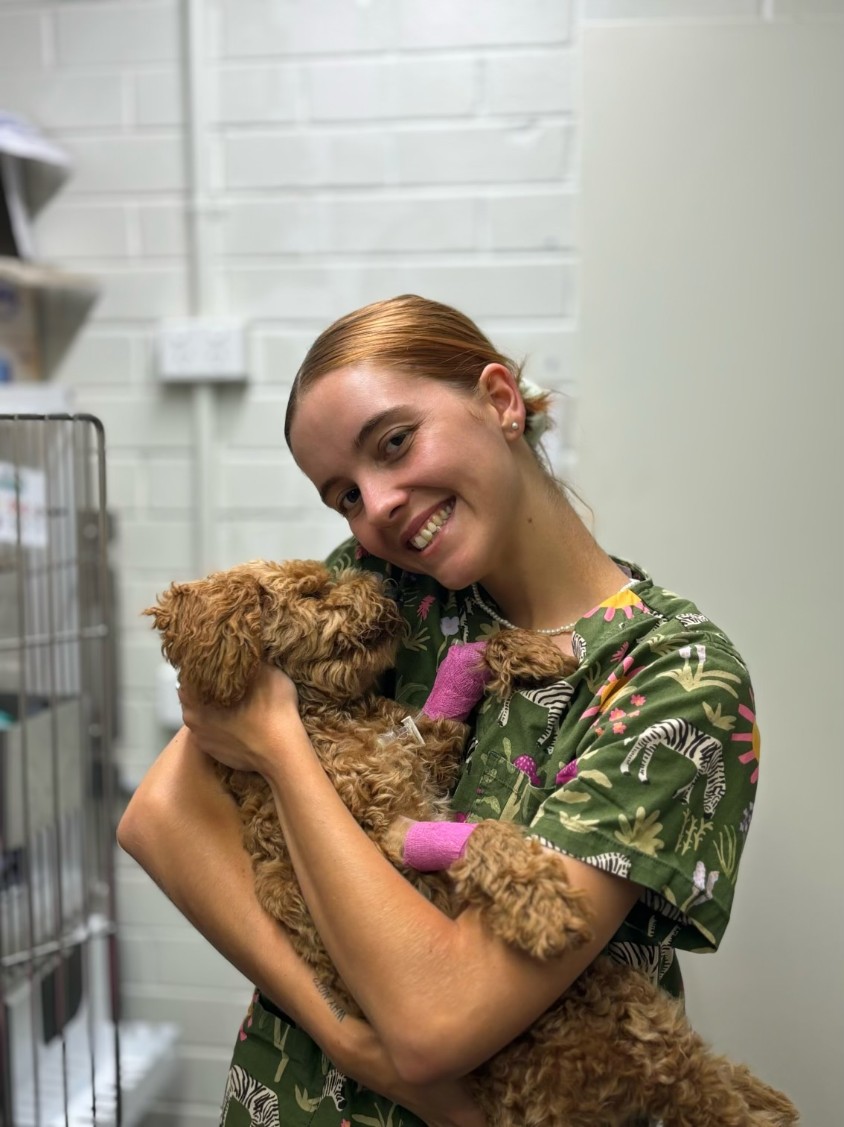
Prompt Service
We work with you and your schedule to get your pet the care they need, when they need it.
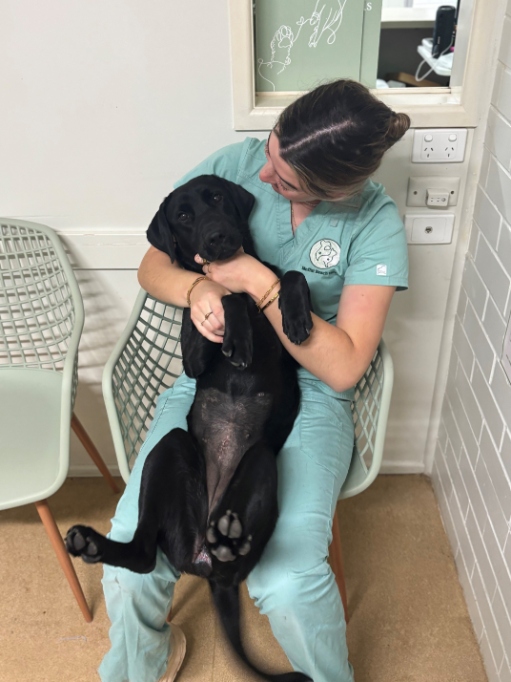
Fear Free Approach
To ensure your pet has an anxiety free visit to our clinic, we offer a range of methods and practices to help keep them feeling calm and safe.
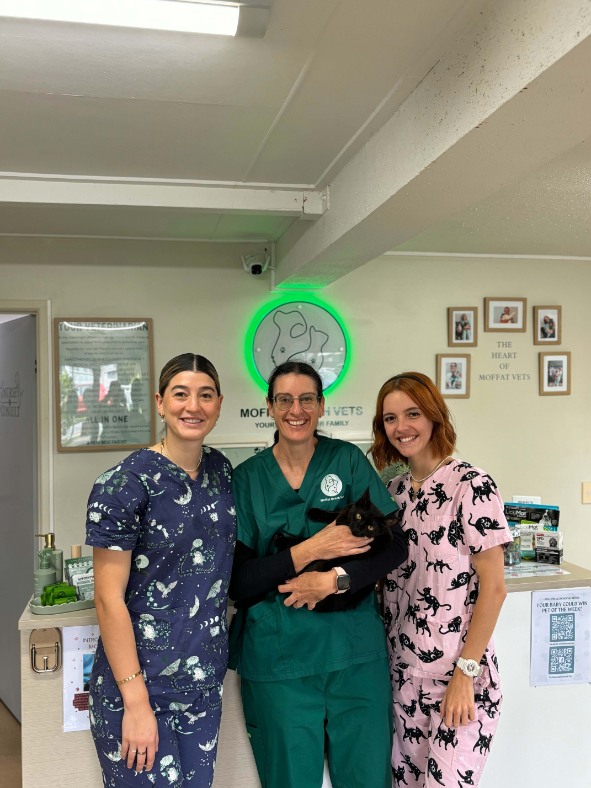
Caring Staff
If your pet has a bad night but you still need to work in the morning, drop them off with us. Our vets will assess and care for them between regularly scheduled appointments.
When Bloodwork Results are Abnormal
If your pet’s diagnostic tests return as abnormal, it does not necessarily mean they have a major health problem.
To accurately identify the seriousness of the original test results, we may request your pet return for more testing. At this point, we may repeat the same test or complete further investigation through an ultrasound, Xray, or biopsy.
Based on your pet’s final results, we’ll develop a treatment and care plan to address your dog or cat’s specific disease.
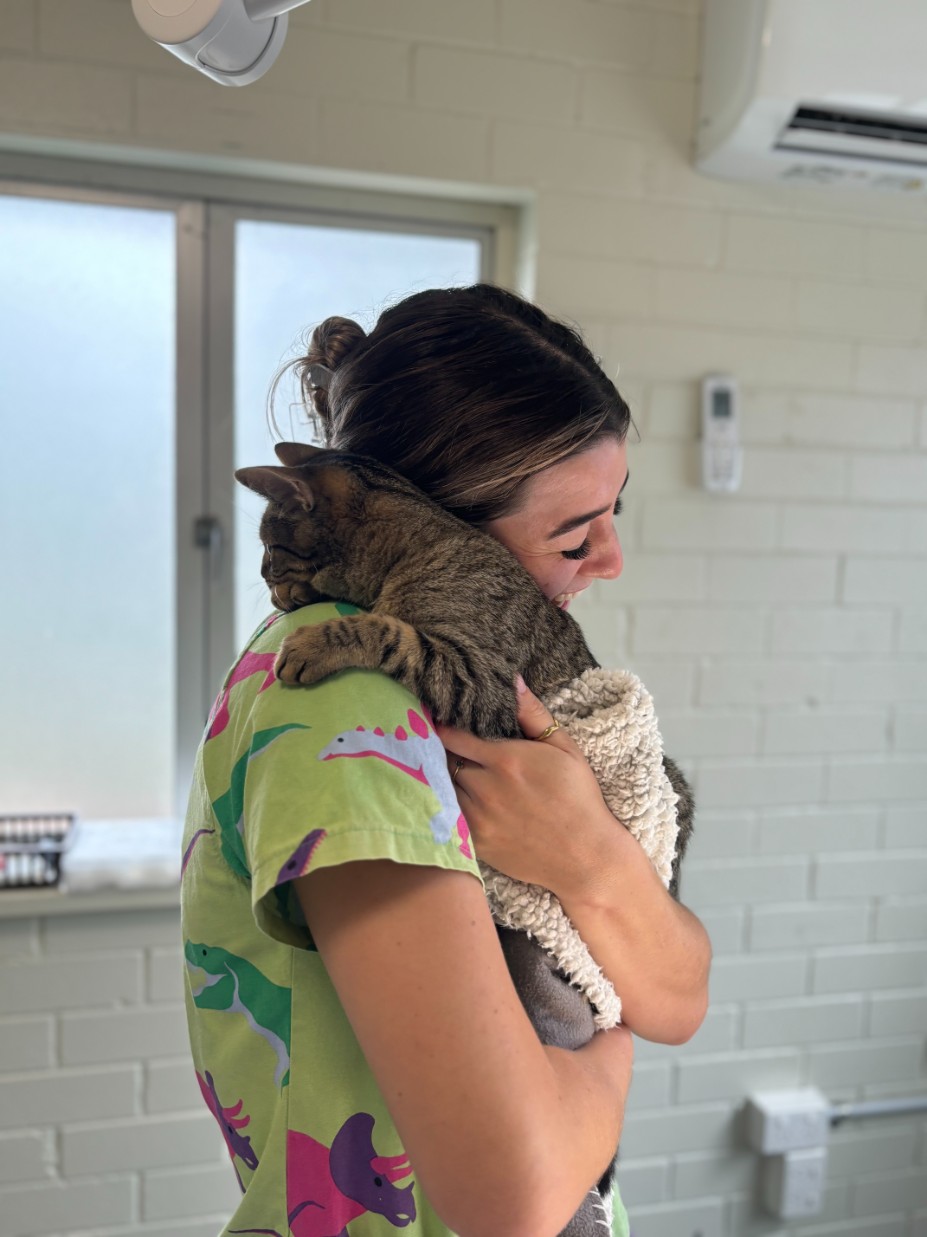
Common Questions About Small Animal Diagnostics
Everything you need to know about how we identify canine and feline diseases. Can’t find an answer? Contact our team.
How much does animal blood work cost?
The cost of blood work depends on the type of tests required. A standard blood panel typically ranges from $200, but more comprehensive testing may cost more. Contact us for an accurate quote based on your pet’s needs.
Does my pet need to fast before getting blood work?
In some cases, yes. We recommend fasting your pet for 8-12 hours before blood work to ensure the most accurate results. However, some tests don’t require fasting—our team will let you know if that’s the case for your pet.
Does getting blood drawn hurt my dog or cat?
Blood draws are quick and cause minimal discomfort, similar to a small pinch. Most pets tolerate it well, and our experienced team likes to use fear free techniques (numbing cream, treats, etc) to make the blood draw as painless and stress-free as possible.
Can blood work detect cancer in my pet?
Blood work can provide indicators of potential cancer, such as abnormal cell counts or organ function changes. However, a definitive diagnosis usually requires additional tests, such as imaging or a biopsy.



